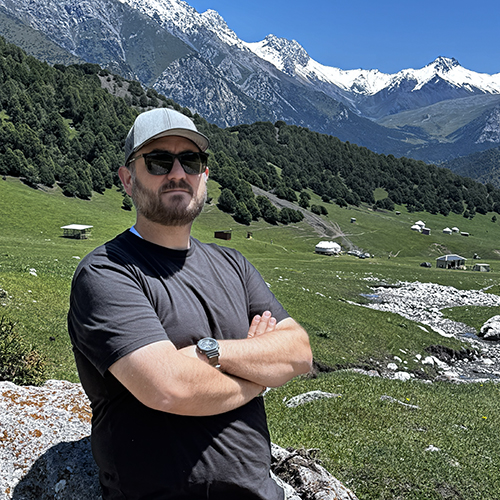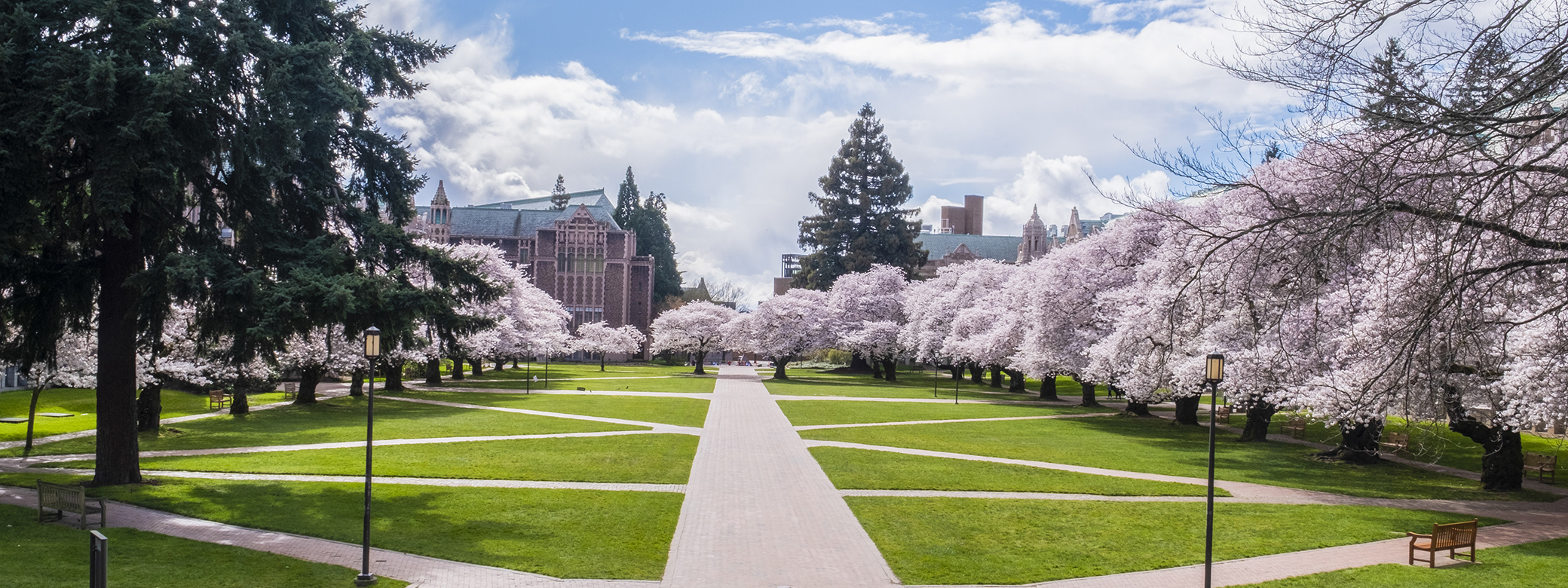University of Washington professors Xiaodong Xu, Cynthia Vinzant, and Shayan Oveis Gharan have been honored by the National Academy of Sciences (NAS) in recognition of their research accomplishments.

Xiaodong Xu, professor of physics in the College of Arts & Sciences and of material sciences and engineering in the College of Engineering, was awarded the NAS Award for Scientific Discovery. The award, presented every two years, recognizes an accomplishment or discovery in basic research within the previous five years that is expected to have a significant impact on astronomy, biochemistry, biophysics, chemistry, materials science, or physics. Honorees receive a medal, a $50,000 prize, and $50,000 to support the recipient’s research.
Xu’s research explores new quantum phenomena in layered two-dimensional materials and engineered quantum systems. His work not only deepens our understanding of fundamental concepts such as topology, magnetism, and strong electron interactions, but also paves the way for transformative advancements in quantum technologies, including computing, energy, and communication.
More specifically, NAS recognized Xu for groundbreaking experimental observation of the fractional quantum anomalous Hall effect, a discovery that marks a major breakthrough towards the realization of topological quantum bits (qubits) -- a crucial step toward achieving fault-tolerant quantum computing, an advancement that could revolutionize every aspect of our society.
“This award is a tremendous recognition from the scientific community of our discovery of the fractional quantum anomalous Hall effect,” says Xu. “It opens an exciting new research frontier in correlated topology, and my team and I are thrilled to explore its potential.”

Cynthia Vinzant, associate professor of mathematics in the UW College of Arts & Sciences, and Shayan Oveis Gharan, professor in the Paul G. Allen School of Computer Science & Engineering, were awarded the Michael and Sheila Held Prize for work that explores algorithms for sampling from large spaces of combinatorial objects, such as minimal connections in a network.
“One goal is to progressively make small random changes to a starting object to quickly generate representative samples from the whole space of possibilities,” Vinzant explains. “Surprisingly, one can use the algebraic and geometric structure of related polynomials to understand the behavior of this process.”
The $100,000 prize, which Vinzant and Oveis Gharan will split with two other recipients (Nima Anari at Stanford University and Kuikui Liu at MIT), recognizes recent work, defined as work published within the last eight years.
“We are very grateful to the National Academy of Sciences and the Michael and Sheila Held Prize Committee for this recognition,” says Vinzant. “The work honored by this award builds on developments in several fields of mathematics and computer science. We hope that it will help highlight the value of curiosity-based interdisciplinary research.”
As these researchers advance our understanding of the world, new questions and areas of exploration arise, which become fertile ground for our students and the next generation of scientists.
Daniel Pollack, divisional dean of natural sciences in the College of Arts & Sciences, is pleased to see NAS recognize UW faculty for work at the forefront of research in the mathematical and physical sciences. “Their work, in resolving long outstanding conjectures and experimentally discovering new physical phenomena, represents the best aspects of fundamental science research conducted at this university,” Pollack says. “As these researchers advance our understanding of the world, new questions and areas of exploration arise, which become fertile ground for our students and the next generation of scientists.”
The National Academy of Sciences is a private, nongovernmental institution that was established under a congressional charter signed by President Abraham Lincoln in 1863 to advise the nation on issues related to science and technology. It recognizes achievement in science and — along with the National Academy of Engineering and the National Academy of Medicine — provides independent, objective analysis and advice to the nation and conducts other activities to solve complex problems and inform public policy decisions.
More Stories

AI in the Classroom? For Faculty, It's Complicated
Three College of Arts & Sciences professors discuss the impact of AI on their teaching and on student learning. The consensus? It’s complicated.

Through Soil Science, an Adventure in Kyrgyzstan
Chemistry PhD alum Jonathan Cox spent most of 2025 in Kyrgyzstan, helping farmers improve their soil—and their crops—through soil testing.

A Sports Obsession Inspires a Career
Thuc Nhi Nguyen got her start the UW Daily. Now she's a sports reporter for Los Angeles Times, writing about the Lakers and the Olympics.
